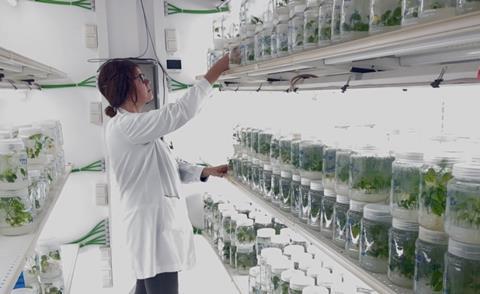Company scoops prize for its pioneering methodology to measure the ecological footprint of different vegetable varieties
Barcelona-based Semillas Fitó has won a Retina ECO Award for its development of new, more efficient vegetable varieties and the creation of the first specific methodology for calculating the ecological footprint of vegetable crops at the varietal level.

The project, which forms part of Fitó’s sustainability plan, allows the environmental impact of horticultural varieties to be scientifically quantified through five key indicators: carbon footprint, water footprint, energy footprint, land use footprint, and resource use footprint (phytosanitary products, fertilisers, and disinfectants).
According to the company, the results obtained so far show reductions of between 10 and 12 per cent per tonne produced in a number of its varieties, including the Nelto pepper and Augusto aubergine rootstock. The latter has also managed to reduce its resource footprint by 27 per cent.
“What truly sets this project apart is not only the genetic development, but also the fact that we can now measure and compare the impact of each variety with a rigorous methodology adapted to the horticultural sector, something that did not exist until now,” said Juan Jesús Narváez, a member of Semillas Fitó’s Sustainability Committee.
The methodology, developed in collaboration with the Institut Cerdà, has been designed following the principles of the European Commission’s Product Environmental Footprint (PEF). It will soon be submitted to the International Seed Federation’s ESG Group for official validation by Brussels. This could make it the first European standard for measuring the environmental sustainability of horticultural varieties.
Fitó’s director of corporate relations, Elisabet Fitó, said the tool will be made available to the entire agri-food sector. “At Fitó, we want to be the expert partner in sustainability for the entire agri-food chain. It’s not just a question of the product, but also of supporting it with scientific and applicable solutions. It’s our way of generating shared value,” she said.
The tool is already being applied in real-life scenarios. “In the case of peppers produced in Murcia, one of the leading producers in southeastern Spain, the use of more sustainable varieties would allow an estimated potential annual reduction of 2,080 tonnes of CO2 equivalent. Extrapolated to a global scale, the projection is even more significant: more than 460mn tonnes of CO₂ equivalent could be avoided if new varieties were integrated into the main producing areas,” the company said.
“For farmers, the value of these new varieties goes beyond their environmental impact: they represent a concrete tool for improving profitability, reducing risks, and adapting to an increasingly demanding environment.
“Thanks to their efficiency-oriented genetic design, these varieties could optimise the use of essential resources such as water, energy, and agrochemical inputs. In practice, this could translate into cost reductions in critical phases of the crop cycle, providing economic stability in a context marked by price volatility and pressure on operating margins.”



